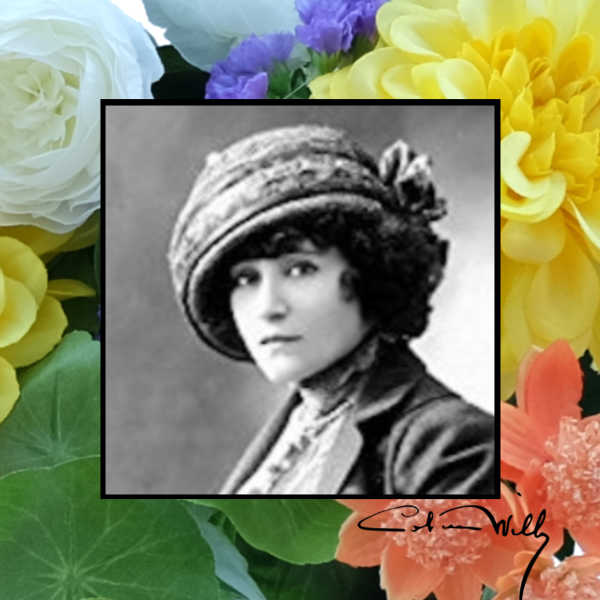Blog
The Story:
Colette was born Sidonie-Gabrielle Colette in France, in 1873, she was the child of Jules-Joseph Colette and Adele Sidonie. Best known as an author, her most famous piece of work was the novella ‘Gigi’, written in 1944. Four years on and she was nominated for the prestigious Nobel Prize for Literature.

She certainly led a colourful life. When she was 20, she married Henry ‘Willy’ Gauthier-Villars-Villars, 14 years her senior. He was known as a Parisian ‘libertine’, someone who is devoid of moral principles. He introduced Colette to some very risqué circles and was regarded by many as being highly sexually promiscuous.
Colette’s initial books were written under his name but after a while she decided that she wanted to be acknowledged as the writer in her own right. Willy was less than impressed; he refused and used to confine her to her room until she had written, what he regarded, as a suitable quantity.
In 1906 the couple separated and Colette was not allowed any of the earnings attributed to the books, as they were classed as her husbands. Colette decided to take to the French music halls to try and earn some income in order to survive. She often went hungry. In 1910 she wrote ‘La Vagabonde’ which was about a woman trying to claw independence in a hugely dominated male society.
Controversy followed her, she started a series of relationships with other women, something her husband had encouraged many years previously. In 1907 she had an on-stage kiss with Mathilde de Momy, a french noblewoman; it caused a huge furore. The couple were not allowed to openly continue their relationship, though privately it sustained for a further 5 years.
In 1912 she married again, the editor of a French newspaper and during WW1 she became involved in journalism. They had a daughter, though Colette was not the doting mother. In 1924 their marriage ended, he was unfaithful and she had had an affair with his 16 year old son! It caused a huge stir. She wrote about elements of this in her book ‘Cheri’. A year later she took her third and final husband, 16 years her junior. They were married for 29 years, until her death.
She wrote most of her work in the 1920-30’s, and her work was dominated with the themes of sexuality and marriage, and the place of women in society. She openly criticised the conventional lives of women.
Colette died in 1954. She was polemical, both in her character and her writing. A few considered her, certainly in her initial years, as being limited in writing talent. However, the year of her death she was regarded in the NY Times as the greatest living French writer, above Proust.
She was controversial, her morals were, certainly at the time, highly questionable, she did not live the conventional life most women led during the war years. But whatever your views on Colette, one cannot deny that she was candid and bold, confident in making choices that she wanted to make. Though in part a realist too, she knew it was still a man’s world and thus made the best of the limited choices she could initiate on her own. She questioned women’s roles in life though her books and questioned the rigid sexuality they had to live by, by forging her own path. She was bold and she lived a highly colourful life; and in the immortal words of the woman herself “What a wonderful life I’ve had! I only wish I’d realised it sooner”……formidable Colette.
